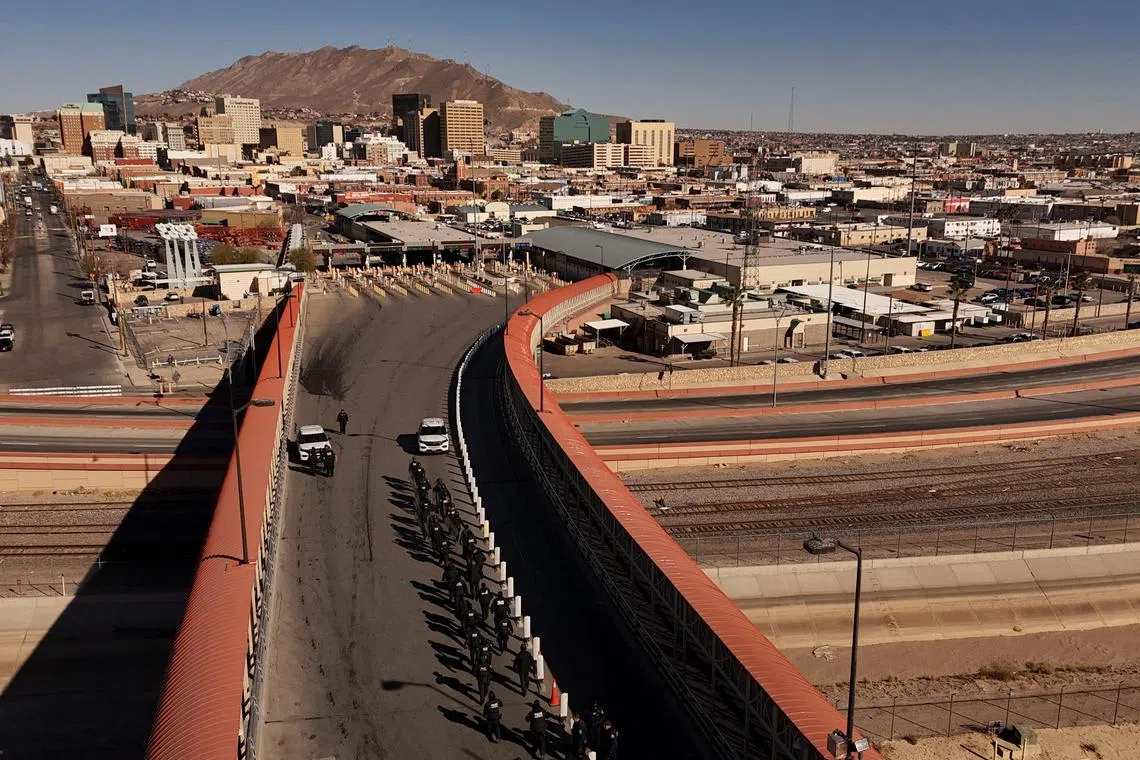US orders pause to programmes allowing temporary immigrant settlement, NYT reports
Sign up now: Get ST's newsletters delivered to your inbox

The programmes offer possible entry for immigrants from an array of countries, including war-torn Ukraine and others dealing with political upheaval or extreme poverty.
PHOTO: REUTERS
WASHINGTON – US Department of Homeland Security officials have ordered what amounts to a pause in several programmes that allow immigrants to settle temporarily in the United States, The New York Times reported on Jan 24.
The directive demands an immediate end to “final decisions” on certain visa applications pending a review by the Trump administration about whether to cancel the programmes permanently, the Times reported, citing an e-mail sent by the top official at US Citizenship and Immigration Services.
The programmes offer possible entry for a large number of immigrants from an array of countries, including war-torn Ukraine and others dealing with political upheaval or extreme poverty.
President Donald Trump, on his first day in office on Jan 20, issued a series of executive orders intended to deter illegal immigration
The Trump administration is pushing ahead with efforts to ramp up immigration enforcement, opening up the possibility of targeting migrants who entered through Biden-era programmes and invoking an obscure immigration statute to make it easier to deputise state and local law enforcement to arrest and detain immigrants in the US illegally.
One terminated programme had allowed migrants waiting in Mexico to schedule an appointment to request asylum at a legal border crossing. Another allowed Cubans, Haitians, Nicaraguans and Venezuelans outside the US to enter by air if they had US sponsors and undergone vetting. REUTERS


